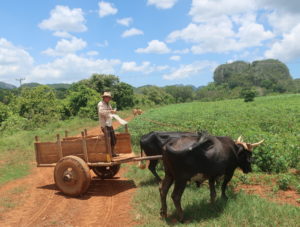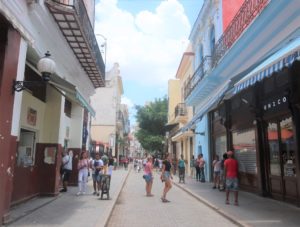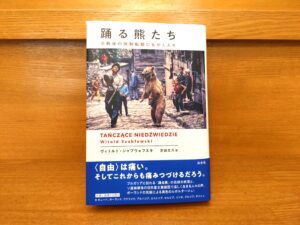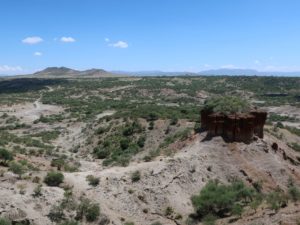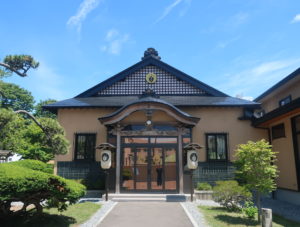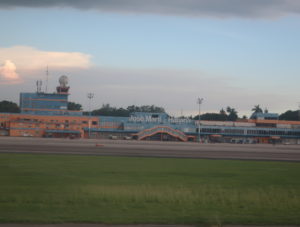「インバウンド頼みのキューバの現状と格差、教育問題」日本も他人事ではない! キューバ編⑫

深刻!日本も他人事ではない!現地ガイドさんに聞く「インバウンド頼みのキューバの現状と格差、教育問題」 僧侶上田隆弘の世界一周記―キューバ編⑫
衝撃のサルサ体験でショックを受け寝込んでいたぼくであったが、ぼくはベッドの上で2日前のハバナ散策に同行してくれたガイドさんの言葉を思い出していた。
キューバの現状とこれからを憂うガイドのダニエルさんの言葉をぼくは忘れることができなかったのだ。
先の記事でもお話ししたがダニエルさんはハバナ大学卒で日本にも留学経験のあるガイドさん。
ハバナを散策しながらぼくらはたくさん話をした。
キューバの歴史や宗教の話、経済の話やキューバ人の気質などたくさんのことをダニエルさんから聞くことができた。
その中でも特に印象に残っているお話がキューバの現状についてのダニエルさんの見解だった。
「キューバにはいいところも悪い所もあります。
いいところは教育と医療システムのすばらしさです。私もハバナ大学を6年、日本留学も1年しました。すべてタダです。誰にでも学ぶチャンスがあることはすばらしいことです。
ですが現在のキューバには深刻な問題があります。
経済と観光の問題です。
私の父はエンジニアでした。つまり専門職、いわばプロフェッショナルでした。
でも給料は3500円でした。
たしかに食料や医療は国から支給されます。ですが基本的にものは足りません。
お金があればもっと買い込むことができるのかもしれませんが、ほとんどの人はそれができません。
私には子供がいます。子供の靴、いくらだと思いますか?
5000円もするのです。子供の靴が。
3500円の給料で買えますか?
ネットも1時間で100円といっても、給料が3500円だったら使えますか?
私の大学の教授も父のような専門職も、みなそのような給料です。
お金がありません。
ところで隆弘さん(筆者)、今キューバで1番お金を持っているのは誰だと思いますか?」
―もしかして、政府の官僚ですか?昔みたいな腐敗が起きてしまっているのですか?
「いえ、そうではありません。
実は今1番お金を持っているのは、タクシードライバーなんです」
―!?
「彼らは私たちの10倍以上のお金を持っています。
ホテルやレストランの店員もそうです。みんなチップで稼いでいます。」
なるほど・・・おかしいなとは思っていたのだ。
タクシーや飲食店でチップを渡すのは欧米のルールとして守らなければならないマナーだ。
だからぼくもそれに大人しく従っていた。
だがここキューバではそれははたして本当にいいことなのだろうかと、ぼくはキューバに来て数日後から疑問に思うようになっていた。
キューバはみな国家公務員扱いで、給料も多少の差はあるとはいえ皆およそ3500円ほどと決まっている。
そのような人たちにぽんとチップとして100円、あるいは500円ほどの金額を渡してもいいのだろうかと。
給料3500円の人にとっての100円、500円はどんな意味を持つ?
気前のいい人ならぽんと1000円2000円チップで出してしまうだろう。
月収の半分近くがたった1回のタクシー送迎や飲食店の接客で手に入ってしまうのだ。
そのお金は一体どこにいくのか?まさか政府がそれを吸収しているのか?
もし手元に入るなら金銭感覚がおかしくなるのではないか?とぼくはキューバに来てからずっと感じ続けていたのだ。
だが、ダニエルさんのお話を聞いて初めてこの状況を納得できた。
タクシードライバーや、ホテルや飲食店の店員は普通の人の10倍以上もお金を持っている。
やはり観光業は明らかにキューバの平等社会にひずみを与えているようだ。
「キューバの教育制度は大学まですべてタダです。
しかし大学に入るのはものすごく難しいです。
しかも入ってから卒業するまでさらに難しくなります。
私の同級生も入学当時は40人いたのですが、卒業するころには13人になっていました。
本当に難しいです。必死にやらなければ付いていくことすら難しいです。
でも、こんなに苦労してまで卒業して教授や専門職になったところで給料は3500円です。
そんなのやってられないと、今の若者は勉強したがりません。
かつての子供たちの夢は医師や獣医、弁護士でした。
ですが、今の子供たちの夢は何だと思います?
タクシードライバーですよ。
みんな手っ取り早く稼げる観光業ばかりやりたがります。
今はまだ専門職の人が高齢ながらも残っているので世の中のシステムはなんとか回っています。
でも、彼らがいなくなってしまったら?
私にはキューバの将来が全く見えません。10年20年先のキューバの姿がまったく想像できないのです。」
・・・何てことだ・・・これは日本よりはるかに深刻な状況なのではないか?
国を動かし、社会システムを機能させるのは様々な専門分野を学んできた人間あってこそだ。
儲かるからと言って全ての人がタクシードライバーやホテルや飲食店の店員になってしまったら誰が国を動かすというのだろうか。
観光業は諸刃の剣だ。
一歩間違えば国の基盤を破壊しかねないものだ。
月給3500円なのに1回のタクシーで100円のチップ。一か月換算すれば軽く月給の10倍以上稼ぐことができる。
こんなぼろ儲けがあるならそれに抗うのは本当に難しい。ぼくだってもしそういう境遇に置かれたら抗いきれるか自信はない。
日本で言うならばタクシーに人を乗せる度、お店で接客する度に1000円以上のボーナスがもらえるということだ。多い時には5000円から10000円だってあるかもしれない。
この誘惑には抗いきれないだろう。必死になって勉強して、その後も貧しい生活をするしかないとなったらそれが馬鹿らしく感じてしまうのも人情だ。
だがそれはいつしか国を崩壊させかねないほどの病気となって国に襲いかかるだろう。
気付いた時にはもう手の打ちようがない。
国を動かせる人材がもはや残っていないのだ。
これは日本も他人事ではない。
これから観光業が日本でもさらに増えていくことになる。
ぼくの住む函館も近年外国人観光客が急増し、次々と新しいホテルが建っている。
観光業がなければ経済が立ち行かないほど今の日本は経済的に苦しい。特に地方では産業も振るわず、苦境を迎えている。
その救世主として観光業が重要なのはよくわかる。
だが、それに飲み込まれてしまったら国の基盤が知らぬ間に破壊されてしまうのだ。
観光業はものを生産しない。世界を変える新たな発明ももたらさない。社会インフラを支える専門職もみるみる内に減っていく。
観光業そのものが悪いと言っているのではない。
観光業はその国のことを知ってもらう大切な機会だ。経済的にも重要な収入源でもある。
アメリカの経済封鎖で物資もなく、苦しい経済状況のキューバにとってはそれこそ救世主的なものだった。
ただ、観光業がはらむ負の側面を侮ってはいけないということをダニエルさんは強く警告していた。
キューバはみな平等に貧しかった。
しかし観光業の導入によって一気に格差が広がってしまった。
これまでの旧き良きキューバは失われてしまうのだろうか。
キューバはこのような急激な変化の中にいる。
観光業の導入によって莫大な外国資本がキューバに流れ込むことになった。
そのひずみは若者の教育問題にも大きな影響を与えることになった。
教育は国の行く末を決める重要な問題だ。
キューバでは観光業によってその教育が危機的な状況に進みつつある。
では翻って日本の教育は今どういう状況にあるのだろうか。
このことについてはここではお話しできないが、ぼくの中で教育という問題について大きな関心を持つきっかけとなった。
教育が国の未来を決めていく。そのことを強く胸に刻んだダニエルさんとの対話だった。
続く
次の記事はこちら
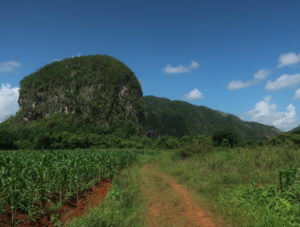
前の記事はこちら

関連記事


